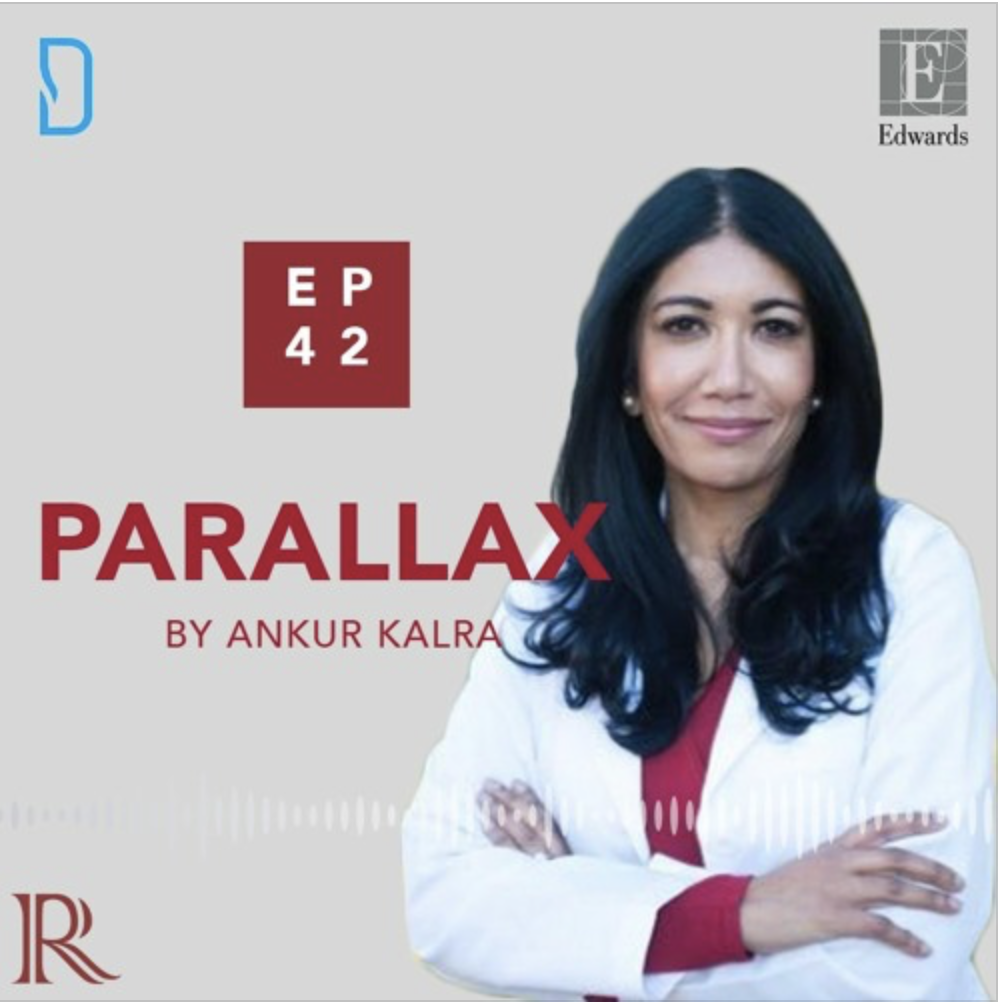
In one of her many posts on Instagram, we can see Dr Hafiza Khan holding a table summarising her reactogenicity after her second COVID shot. In the frame next to her is her son listing his own reactions.
Ankur’s guest is Dr Hafiza Khan, Cardiac Electrophysiologist at Baylor Scott & White Arrhythmia Management in Dallas. One of only 9 women in her field in Texas, she started to think about her legacy and the ways she can increase her impact and give back to her colleagues and patients as well as future medical students. 18 months ago, she started a microblog with the aim of drawing more women to her specialty and procedure-based medicine. Today she has more than 50.000 followers, many of them aspiring clinicians themselves. Her expertise and personal touch not only make her feed a great educational tool, but also a binge-worthy source at a time when building bridges between the scientific community and the public is key.
In this episode, Ankur asks Hafiza to talk about Instagram and reaching millennial and gen Z audiences, as well as the importance of developing and maintaining trust between different communities at a time of information overload.
Follow her on Instagram @heart.beat.doctor.
Questions and comments can be sent to “podcast@radciffe-group.com” and may be answered by Ankur in the next episode. Guest @HafizaKMD, hosted by @AnkurKalraMD. Produced by @RadcliffeCARDIO.

Brought to you by Edwards: www.edwardstavr.com

What drives Dr Nishtha Sodhi? What were the formative moments of Dr Sodhi’s career? What are the new frontiers of cardiology?


In this episode, Ankur and Danielle speak about the evidence in favour of a whole-food plant-based diet to improve cardiovascular health, the ACC prevention guidelines, how to talk to patients about positive dietary change, the issue of lack of nutrition training in cardiovascular fellowships and what Danielle’s diet looks like as a busy whole-food plant-based cardiology fellow. On her own podcast ‘Nutrition Rounds’ Danielle has discussions about evidence-based plant-based nutrition with physicians who are leading experts in nutrition and health.
Hosted by @AnkurKalraMD. Produced by @RadcliffeCardiology.

In this brilliant conversation, Ankur, Emmanouil and Michael unravel the potential advantages, challenges and practical realities of using drug-coated balloons in SVD, and the findings of the latest randomised controlled trials studying this area.
Hosted by @AnkurKalraMD. Produced by @RadcliffeCardiology. [Disclaimer: The use of drug-coated balloons in coronay intervention is still off-label; it has not been approved by the FDA.]

Dawn is an associate editor of the journal Circulation: Cardiovascular Interventions and is widely known for her research program on PCI and peripheral arterial disease (PAD). Ankur and J. Dawn discuss multiple trials/studies that were published in 2018, including ORBITA, PIONEER-II and ABSORB. J. Dawn also shares her thoughts on the latest stent technologies.
Hosted by @AnkurKalraMD. Produced by @RadcliffeCardiology.

They discuss the importance of preventative medicine, their experience of reducing hypertension with non-pharmaceutical and pharmaceutical methods, and the significance of the integrated “team approach” when treating comorbid conditions such as hypertension. Athena also shares her thoughts on cardiologists’ responsibility to shape their patients’ lifestyle choices.
Hosted by @AnkurKalraMD. Produced by @RadcliffeCardiology.

Chest pain is one of the most common reasons for an emergency room visit in the US, with almost 6 million ER visits annually, yet there is no consensus on how to compare the results from various hscTn assays. Tune in to hear Santiago outline the advantages and limitations of using hscTn as a standard biomarket to evaluate patients with suspected ACS in the ER.
Hosted by @AnkurKalraMD. Produced by @RadcliffeCardiology.





